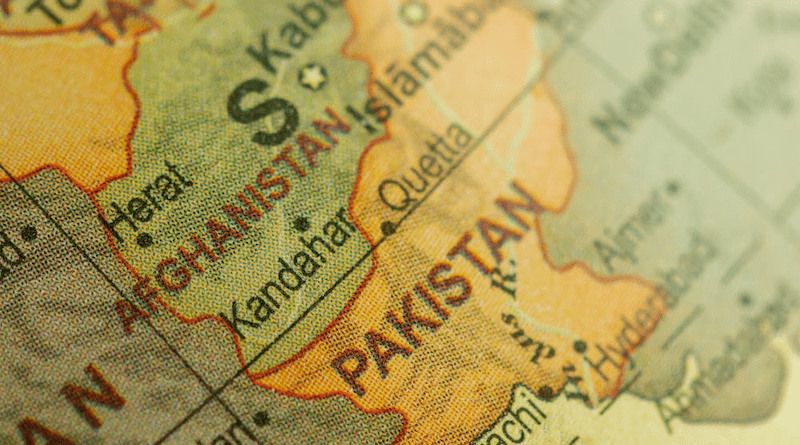Pakistan’s Unique Approach To Bloc Politics – OpEd
By Dr. Sahibzada Muhammad Usman
In the complex tapestry of international relations, bloc politics has historically played a pivotal role in shaping global dynamics. For Pakistan, a country carved out in the tumultuous era post-World War II and thrust into the bipolar world order of the Cold War, navigating these waters has been a journey marked by pragmatism, strategic alliances, and a cautious distance from rigid ideological blocs. It’s important to delve into how Pakistan, despite initial leanings, charted its course through various global pressures and regional tumults, shaping a foreign policy often characterized by its balancing acts rather than firm bloc affiliations.
At the dawn of independence in 1947, Pakistan found itself in a world rapidly being divided by the Cold War’s ideological rift. The young nation’s initial foreign policy leaned towards the Western bloc, primarily influenced by security concerns and the quest for economic and military support. Early decisions such as joining the Southeast Asia Treaty Organization (SEATO) and the Central Treaty Organization (CENTO) were pragmatic, driven more by the geopolitical realities of the time than by a firm belief in the bloc’s ideological tenets. As the Cold War progressed, Pakistan’s foreign policy reflected the era’s fluid dynamics. Its alliances, though often leaning West, were circumstantial, molded by immediate strategic needs rather than a steadfast commitment to a bloc. This period saw Pakistan navigating through the Indo-Pak wars, the Soviet-Afghan conflict, and evolving relations with neighboring China – each event reshaping its foreign policy approach.
In the backdrop of these global shifts, the Non-Aligned Movement (NAM) emerged, championing a path of neutrality and independence from the Cold War’s polarizing alliances. While many newly independent states found resonance with NAM, Pakistan’s engagement with the movement was measured. It observed and occasionally aligned with NAM’s principles but stopped short of fully committing to its ideology. This cautious approach was in part a balancing act, as Pakistan sought to maintain its strategic ties, particularly with the United States, which had become a key military and economic ally.
Throughout its post-independence history, Pakistan’s alliances have been diverse and dynamic. The U.S.-Pakistan relationship, while significant, has been characterized by a series of strategic ups and downs. During various periods, especially concerning Afghanistan and India, this relationship has fluctuated, reflecting changing U.S. policies and Pakistan’s own strategic recalibrations. Parallelly, Pakistan’s bond with China has grown stronger, anchored in consistent mutual support and strategic cooperation. The development of the China-Pakistan Economic Corridor (CPEC) is a testament to this partnership’s depth, showcasing a commitment that transcends the transactional nature often seen in bloc politics.
Regionally, Pakistan’s foreign policy has been heavily influenced by its relationship with India. The enduring Kashmir dispute and the history of conflict have significantly shaped Islamabad’s regional approach. Additionally, Pakistan’s policies towards Afghanistan and Iran have been framed by security considerations, economic interests, and the broader regional power play, rather than adherence to a specific bloc’s ideology. In regional forums like the South Asian Association for Regional Cooperation (SAARC), Pakistan’s role further exemplifies its efforts to balance regional cooperation with its national interests. The dynamics within SAARC often mirror the broader regional tensions, with Pakistan navigating these complexities in pursuit of its regional goals.
In the contemporary geopolitical landscape, Pakistan’s foreign policy exhibits a blend of realism and pragmatism. The nation strives to maintain a balanced rapport with major global powers, adeptly navigating a world where traditional blocs have given way to more fluid and multipolar alignments. This stance is evident in its diplomatic maneuvers to maintain ties with the United States, deepen its partnership with China, engage with emerging powers like Russia, and foster relations within the Islamic world. Each of these relationships presents a unique set of interests and challenges. For instance, while the U.S. remains a key player in Pakistan’s foreign policy considerations, especially in terms of economic aid and security cooperation, the growing closeness with China through initiatives like CPEC underscores a strategic pivot. Similarly, Pakistan’s engagement with Russia, though historically minimal, has seen a gradual uptick, reflecting Islamabad’s desire to diversify its foreign relations. In the Muslim world, Pakistan has sought to play a constructive role, often mediating conflicts and fostering unity. This approach has been part of its broader strategy to position itself as a key player in the Islamic world while balancing its relations with non-Muslim majority states.
Pakistan’s non-bloc stance, while offering a degree of autonomy, also presents unique challenges. The primary challenge lies in navigating the expectations and pressures from major powers without compromising its national interests. For instance, balancing its relationships with the U.S. and China, two global giants often at odds, requires diplomatic finesse and strategic foresight. However, this approach also opens up opportunities. It allows Pakistan the flexibility to engage with multiple partners, leveraging these relationships for economic, military, and diplomatic gains. Additionally, it enables Pakistan to play a more independent role in regional and global affairs, potentially mediating conflicts and contributing to stability in South Asia and beyond. As the world moves further into the 21st century, the landscape of international relations continues to evolve. For Pakistan, the future lies in maintaining its strategic autonomy while fostering partnerships that support its national development and security goals. The balance between engaging with global powers and not being drawn into their rivalries will remain a key aspect of its foreign policy.
Finally, Pakistan’s journey through the labyrinth of global politics has been marked by a pragmatic approach to bloc politics. While initially leaning towards certain alliances, Pakistan has increasingly sought a balanced and multi-aligned foreign policy. This approach, though fraught with challenges, has also provided opportunities, allowing Pakistan to navigate the complexities of international relations with a degree of independence and flexibility. As global dynamics continue to shift, Pakistan’s ability to adapt and maintain this balance will be crucial in shaping its role on the world stage.

